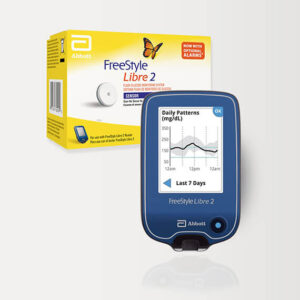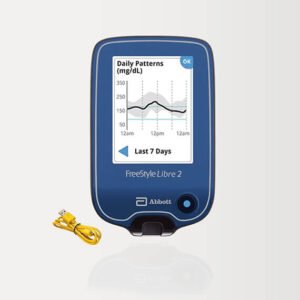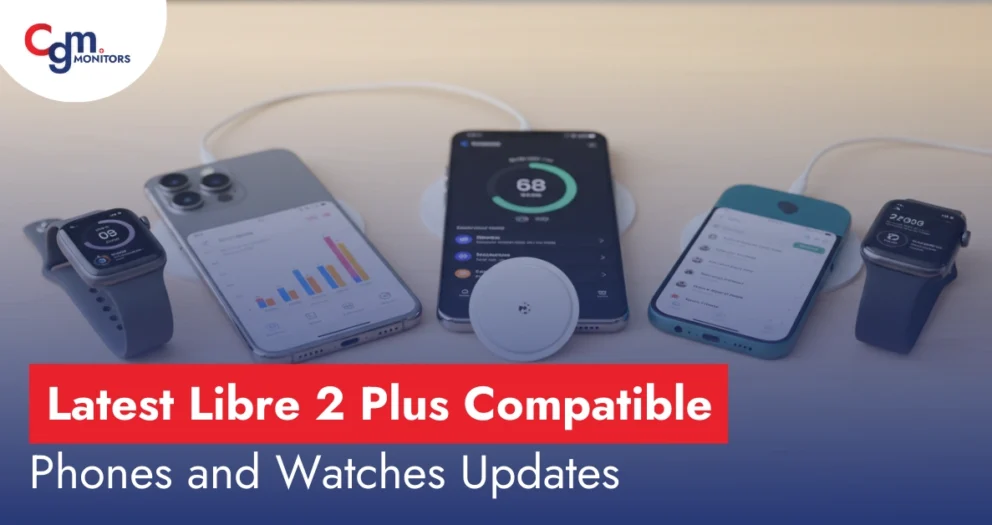Table of content
Introduction
Living with diabetes is more than a personal challenge—it impacts the entire family. Whether it’s Type 1, Type 2, or gestational diabetes, a diagnosis brings emotional, financial, and lifestyle changes that can reshape family dynamics. If you’re wondering, “Does diabetes affect family relationships?” the answer is yes. However, the extent of the impact depends on communication, support systems, and the tools used to manage the condition.
In this guide, we’ll dive into how diabetes influences family relationships, common challenges families face, and how modern tools like Continuous Glucose Monitoring (CGM) sensors and insulin pumps can ease stress and promote family harmony
Emotional Impact of Diabetes on Family Relationships
A diabetes diagnosis can stir a range of emotions, from fear and frustration to guilt and anxiety, not just for the individual but for loved ones too. Family members may feel:
- Worry and Stress: Constant concern about blood sugar levels or potential complications.
- Role Changes: Spouses or children may take on caregiving roles, which can strain relationships.
- Guilt or Blame: Some may feel responsible or struggle with misunderstandings about the condition.
- Caregiver Burden: Constantly monitoring and worrying about the patient’s health can lead to emotional fatigue.
- Conflicts Over Lifestyle Choices: Simple activities like dining out or family celebrations can spark arguments over food and carb counting.
Open communication is key to addressing these emotions. Regular family discussions about diabetes management can foster understanding and reduce tension.

Common Family Challenges with Diabetes
Even if you don’t have diabetes personally, a loved one’s diabetes diagnosis can have an unexpectedly significant influence on your own life. If you’re an associate of someone’s support system, their diabetes could disturb your:
Physical Health
Diabetes directly impacts a person’s body, causing fatigue, excessive thirst, frequent urination, and nerve-related issues. But the stress of caregiving can also affect family members, leading to headaches, high blood pressure, obesity, and even heart disease.
Finances
Managing diabetes is costly—covering medications, doctor visits, and supplies can reach tens of thousands annually. Even with insurance, rising treatment costs can place financial strain on families.
Psychological Health
Diabetes often brings stress, anxiety, and lifestyle challenges. Patients may worry about complications like nerve damage or vision loss, while caregivers face pressure to stay informed and ready for emergencies.
Inherited Risk of Diabetes
Having a family member with diabetes increases your own risk of developing diabetes or prediabetes. Preventive steps—such as healthy eating, regular exercise, and weight management—can delay or even prevent Type 2 diabetes.
Family Support in Diabetes Management: Specific Role
Supportive families play a crucial role in better diabetes outcomes. Research shows that people with diabetes who feel emotionally supported often achieve lower HbA1c levels and maintain healthier lifestyles.
- Spouses can remind about medication or help prepare diabetes-friendly meals.
- Parents of young children with diabetes can work with schools to ensure safety.
- Teenagers with Type 1 diabetes benefit when siblings understand and avoid teasing or resentment about the extra attention given to them.
Real Example: A father of two in Texas shared that when his teenage daughter was diagnosed with Type 1 diabetes, the whole family decided to switch to healthier meals together. Instead of isolating her, they made diabetes-friendly eating a family norm, which strengthened their bond.
Coping Strategies for Families Affected by Diabetes
While technology is a powerful tool, relationships also benefit from intentional strategies:
- Open Communication – Talk honestly about fears, frustrations, and expectations.
- Diabetes Education – Attend workshops or online classes so family members understand the disease and how to help.
- Support Groups – Organizations like the American Diabetes Association (ADA) and NIDDK offer family-oriented resources.
- Professional Counseling – Couples or family therapy can improve communication and reduce diabetes-related conflicts.
- Resilience Building – Encourage self-care for caregivers to prevent burnout.
How Technology Eases the Burden
Modern diabetes management tools can significantly reduce stress for both the individual and their family:
- Continuous Glucose Monitoring (CGM) Sensors: CGM devices like Dexcom G6 and G7 or FreeStyle Libre 3 Plus provide real-time blood sugar readings, reducing the need for constant finger pricks. Family members can monitor levels remotely via apps, offering peace of mind.
- Insulin Pumps: These devices automate insulin delivery, simplifying daily management and reducing the mental load on families. Buy Minimed Medtronic 630G at an affordable price on Cgm Monitors.
- Mobile Apps: Apps that sync with CGM or pumps allow families to stay informed and coordinate care effortlessly.
By integrating these tools, families can focus more on connection and less on worry.
Conclusion
Diabetes undoubtedly affects family relationships, but with the right strategies and tools, families can navigate these challenges successfully. By fostering open communication, leveraging technology like CGM sensors and insulin pumps, and supporting one another, families can turn a diabetes diagnosis into an opportunity for stronger bonds and healthier living. For more resources on diabetes management, check out our guides on CGM benefits and insulin pump options. Visit our websites to see what we have for sale now!
Frequently Asked Questions
How can a family assist with diabetes?
Stress can increase blood sugar levels and it is tougher to control diabetes with stress. Assure your loved one to converse about frustrations and moods. Attempt things together like gardening, walking, watching a funny movie, or attending a diabetes support group.
How can diabetes disturb relationships?
It’s clear but bears saying: No one other than you is more affected by your diabetes than the person who survives with you. Your state can take a physical or emotional toll on your companion or cause conflicts. It’s communal for your partner to worry about Thoughtful health problems, like sightlessness or amputations.
How Can I be directly clear of Diabetes if turn in My Family?
- Preserve a healthy weight.
- Implement a healthy diet.
- Get the suggested amount of physical activity.
- Avoid smoking and restrain alcohol intake.
Do I get diabetes if nobody in my family, has it?
Having a parent or sibling with diabetes indeed increases your risk of getting diabetes. Family history is a danger factor for both type 1 diabetes and type 2 diabetes. Nevertheless, many individuals who Have a parent or sibling with diabetes certainly have diabetes and have no near family members with diabetes.
Are children born with diabetes?
Newborn diabetes is caused by a genetic alteration. There’s presently no way to avoid or cure it, but it can be managed. About half of the babies are diagnosed with neonatal diabetes, the condition vanishes in the start but can reoccur in the future.












Write a comment
Your email address will not be published. All fields are required